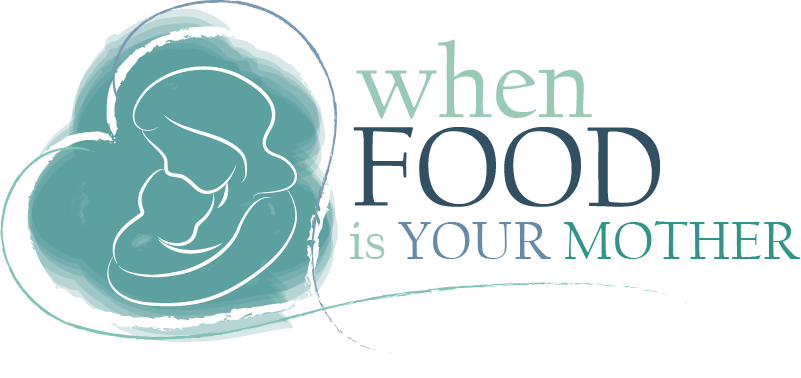
Friends, When Food is Your Mother is now available as a home study course that you can join at any time. Tuition is $200 USD. If you live in Texas you also pay sales tax. We also take checks if you prefer to pay by check. To pay by check contact us here.
Do you overeat under stress?
When we experience overwhelm, and when we feel stressed more than we can bear, our bodies can become activated and tense, caught in a stress response.
Stress responses can appear in many forms - anxiety, fear, numbness, avoidance, distraction, compulsive overdoing, and even self criticism, a 'fight' response.
When we're under stress, our minds and bodies, in their wisdom, look for ways to care for us, to bring us back to a place of functioning, calm, and ease. In particular, as relational beings, we look for places of safety and 'holding' where we can let down and receive support.
But sometimes we don't have places where we can receive emotional support - either internally or externally.
Sometimes reaching out to others for help feels too vulnerable, or we feel too shy.
And many of our cultures, with a focus on individualism, achievement, and self reliance, shame our emotional and relational needs. This can create an inner conflict where we feel shame about even needing or asking for support in the first place.
When this happens, our drive for connection doesn't go away.
Instead, it morphs, like a shape shifter. We look for connection substitutes - like food.
We look to food as a mother - for care, soothing and relief.

The pain - and relief - of 'mothering' with food
When we mother ourselves with food, we often feel temporarily better as we feel held by food's warm embrace. We feel soothed, cared for, seen, heard.
But afterwards, we often feel worse as shame, guilt, or self criticism rises up. We may turn on ourselves for the ways we eat for comfort.
Why do I have such a hard time self soothing without food? Why can't I stop eating when it causes me pain - and when I know better!?"
If you're sensitive and compassionate, this can be especially hard. When we place a high value on self awareness and self compassion, we can feel frustrated when we're caught in something that we know doesn't work - and yet has us in its grip.
We can feel doubly guilty: guilty for the overeating, and then guilty for the ways we're hard on ourselves for overeating.
When overeating leads to isolation
As the guilt compounds, the shame of overeating may lead you to hide your overeating and isolate from others.
And if you're someone who places a high value on your relationships, you may feel like your food struggles are keeping you from being present, from the loving, connected relationships you want to have with your loved ones.
You may criticize yourself. Your relationship with food may seep into other areas of your life, festering a feeling of self doubt.
You may read books, search online, and look for ways to heal your relationship with food on your own, so it can be taken care of - and so you don't have to be vulnerable about your struggles with those you love.
But trying to 'fix' your relationship with food on your own doesn't work, which can lead to more frustration and anxiety. So what can help?
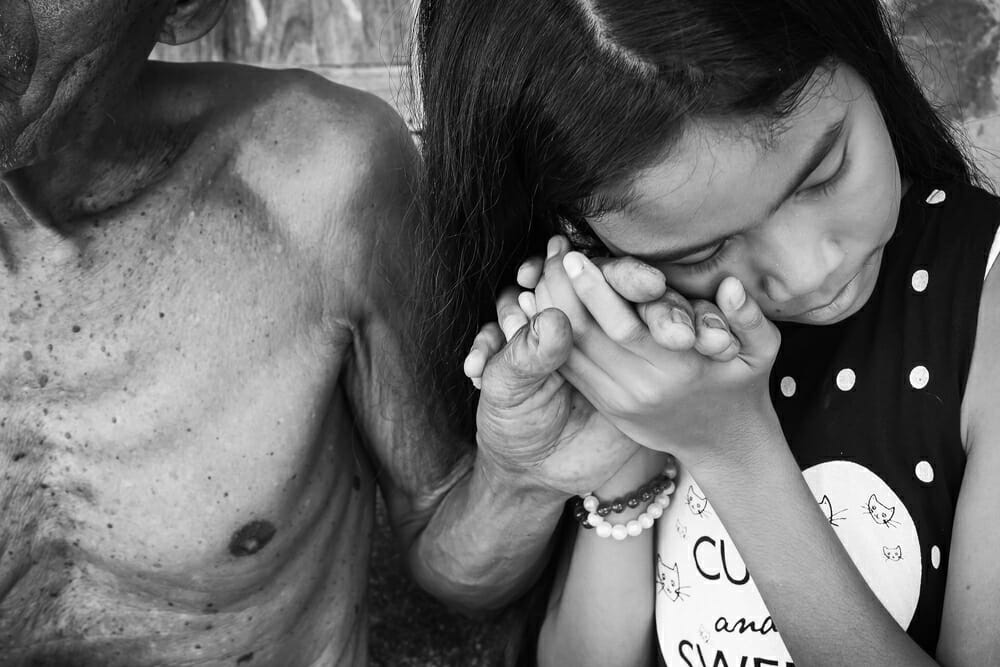
There are good reasons why you overeat
It's understandable why we can feel so ashamed and frustrated when we compulsively use food for comfort - especially when our cultures value 'being in control.'
But as you'll learn in When Food is Your Mother, there are good reasons why you overeat. When we feel overwhelmed, stressed, and caught in painful emotions, everything in our neurobiology is wired to connect.
In the absence of true connection, we can turn to other places of safety and holding - like food. Or we may try to find safety in a quest for an ideal diet, or in the pursuit of an ideal body.
So the motivation behind overeating is based in goodness: to offer yourself care and self nurture. Over time, this habit of turning to food can become an emotional bond that's meeting your relational needs for connection, belonging, emotional expression, and attunement.
This is why it can feel impossible to stick to your good intentions to eat more mindfully. It's not because you don't care, are being 'negative,' or aren't trying hard enough.
Rather, your relational and emotional needs are unconsciously driving your behaviors with food.
When this really sinks in, you might start to see your habits with food in a new way:
Wow - I'm not terrible, lazy, unmotivated, or uncaring for overeating. I'm just overwhelmed, trying to care for myself in the only way I know how!"
This understanding - while sounding simple - is powerful and healing.
I understand why this feels hard
My name is Karly Randolph Pitman, the creator of When Food is Your Mother, and I understand why this feels hard. This topic is close to my heart as I felt overwhelmed by decades of overeating, eating disorders, and shame.
Food was the primary way I cared for my sensitivity, overwhelm, and trauma - the painful sensations in my body, depression, and my body's poor responses to stress. But the relief that food gave me was short lived. Each bout of overeating would trigger shame for the ways my eating felt out of control.
I'd ping pong between depression, overeating, and self harshness, hating myself for the ways I soothed myself in food, and shaming myself for the ways I felt overwhelmed. And yet, in the moment, food was a godsend! (More about me here.)
I wanted to understand the needs that drove me to food so I could be gentle with myself and find other ways of caring for myself. This yearning led me on a path of understanding and wondering that became When Food is Your Mother.
What helped - and what you'll practice in When Food is Your Mother - is gentleness: turning tenderly towards your vulnerabilities rather than pushing them away, shaming, or fighting them.
I created my first course in 2008, and love weaving the compassionate insights of neuroscience, attachment theory, and spirituality into a place of safety and healing, where the painful places in our being can unfold. The course you hold in your hands has been seeded by my generous teachers and by a couple thousand beautiful souls who've taken our classes over the years. Their courage and compassion, surrender and sovereignty, and heart woven labor undergirds every piece of nourishment that you'll receive here.
I live in Austin, Texas with my husband Patrick and our family, two dogs, a very frisky cat (she's really the boss, and lets us know!), and beautiful oak trees. I love good stories, good music, good food, lifting heavy things, and long walks. Underneath all my work you'll find a love for the human heart.
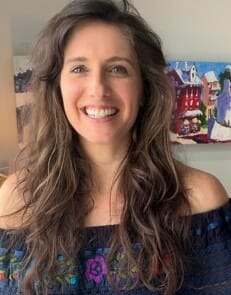
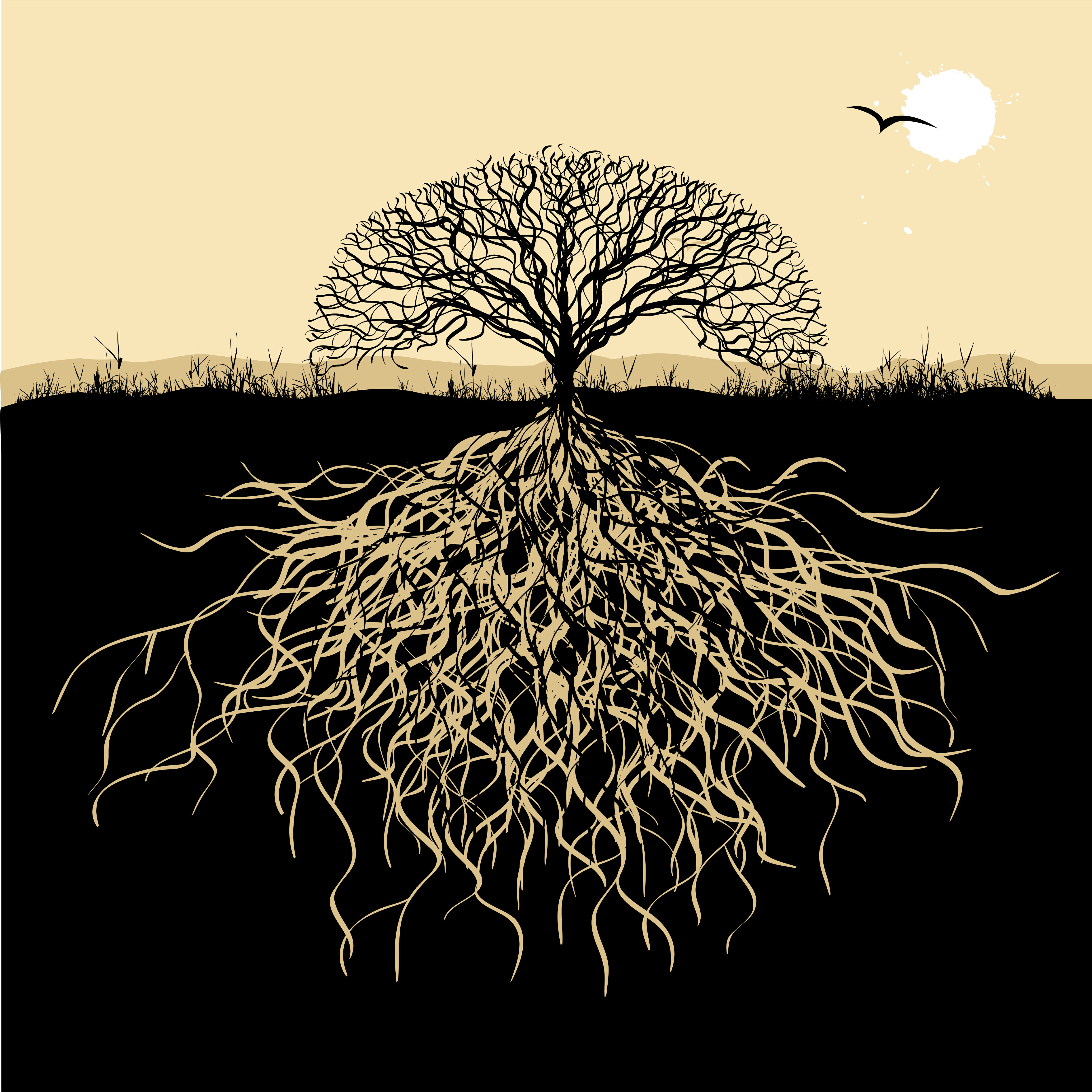
How attachment science can help
you make sense of food
The insights we've learned from attachment theory and neurobiology - the study of how our relationships shape and influence our minds, bodies and brains - offer a lot of help and hope for compulsive behaviors like overeating.
In the past, overeating was seen as a 'bad habit,' a poor choice or a lack of will power. When I listened to people talk about obesity or why people overate, I often heard that "they need to know better,' or learn about nutrition and good eating habits, or need fitness support.
Nutrition coaching has its place, but in my experience, most people who overeat know the overeating isn't helping them - and often know tons about nutrition and health.
It's not a matter of knowledge. It's a matter of how we, as a society, care for our emotional, relational, and spiritual needs - how we relate to our vulnerabilities, emotions, and our need for help and support.
This is the insight that developmental psychology, attachment theory, neuroscience, and trauma research has given us over the past few decades. And this insight can be an ally of healing in your relationship with food.
I discovered this myself when I began studying with my mentor in developmental psychology, Dr. Gordon Neufeld, in 2009. One of the insights I learned from Dr. Neufeld is that relationship is the womb of growth.
When we understand how connection and relationship heal, something in us relaxes as we realize that we don't have to soldier through, trying to tough it out on our own, and we don't have to force growth. In fact, trying to force growth, control our healing process, or ‘cut out’ the overeating doesn't work because it goes against our human wiring, our instinct to reach out for support when we hurt.
But if you build the womb of growth - the relational connections that truly feed and support you - your brain moves out of a place of protection and into a place of safety. As you feel safe and connected, you can grow.
You can move out of fight or flight and into your higher brain, where you have the capacity to relate more kindly, gently, and wisely to stress - to your needs, feelings, emotions, and difficulties.
This is the path of using relationship to heal: to gently, gradually, and compassionately soften a habit of self soothing with food.

What's included: the course curriculum
If you recognize that you use food to self soothe, and you'd like to find ways of relating more gently and authentically to yourself, I'd like to invite you into this year's When Food is Your Mother class.
When Food is Your Mother is an 8 week class to help you soften a pattern of using food for self soothing and to nourish more compassionate, authentic, empowering ways of relating to your needs, emotions, and vulnerability.
Module 1: Understanding why you bond with food
Learn how and why you bond with food as a mothering presence when you're feeling overwhelmed, caught in painful emotions, or overwhelmed by stress.
You'll also learn how to use self compassion to nurture a new pathway, a new way of relating to your needs.
You'll learn:
- why you get stuck in food for self soothing
- the bond that trumps your good intentions to eat more mindfully
- the two primary developmental needs you meet with food
- the two forms of self compassion that nourish growth
- how to meet and care for those young parts that are asking for soothing
- how to build the safety that helps you take risks
- how to separate your cravings for food from your need for nurturing
This module will be taught in two weeks.
Module 2: Building the attachment village, the womb of growth
The womb of growth, the attachment village, is what creates the safety and connectedness to foster healing, change and new life.
While every attachment village also includes relationship with others, in this module we're focusing primarily on building your internal village – internalizing a village of supportive, loving helpers and building an oasis of safety inside yourself.
You'll learn:
- how you internalize both positive and negative experiences and connections with your world around you
- how to amplify warm, positive connections in your inner world so you feel held, safe and cared for
- how to build your inner protector, the shield from self criticism and self blame
- how to soften criticism, self attack, and harshness
- how to create a healthy and nourishing attachment with yourself
- how the voice of separation appears in your life, and how to soften it
- the subtle difference between trying to change your vulnerabilities and caring for them
Module 3: Softening your emotional bond with food
Now that you've learned why you bond with food, and now that we've spent time building safety and nurturing the inner village, in this session you'll learn how to soften this bond and take the 'exquisite risk' towards growth. You'll learn how to support yourself in relaxing your bond with food, finding other sources of refuge.
You'll learn:
- the developmental process that allows the emotional brain to 'unhook' and let go of painful patterns
- how to build resilience through letting go
- howto set loving limits with food
- howto soften the fear of making mistakes and food perfectionism
- how to soften the feelings of “I should've known better”
- howto build the impulse control that helps you sit with cravings
- how to connect with your strongest self, the part of you that doesn't crave food
- andhow to soften self criticism, guilt, and powerlessness with food
Module 4: Creating a healthy attachment with life and resting in your wholeness
In this session you celebrate the village of homecoming! We bring it all together to deepen your felt sense of being cared for, connected, and in community internally, within your being, and externally, with others and Source. Connectedness softens overresponsibility, deepens joy, belonging, and purpose, and helps us co-regulate.
You'll learn:
- how to use your food struggles to deepen connection with others rather than create isolation
- howto deepen compassion and kindness towards your food challenges
- howto open to forgiveness and Love where you feel like you've 'failed'
- how to temper over-responsibility
- how to open to receiving connection, support, and help
- how to build a village of external support
- how to soften feelings of isolation, an overfocus on self-regulation, and 'needing to do it alone'
- how to create a support system for when you get stuck
- and how to bond with positive experiences – play, joy, gratitude, and purpose
This module will be taught in two weeks.

How the course works
The course is comprised of core lessons to help you understand why you bond with food and how to soften a pattern of using food for comfort. You listen to the course materials on your own.
This big picture orientation softens anxiety, gives you a 'lay of the land,' and puts the left brain to 'rest' so it can support your healing rather than trying to control it.
Collage play
As we learn, things come up! When you listen to the course materials, you might notice places inside that feel sad, places that feel angry, places that feel validated, or places that go, "YESSS!!!" to the materials.
So we've built support into the course to care for what arises in you. You'll receive weekly prompts to create simple, healing collages or drawings. You'll gather images that speak to you and draw out your experience.
I've shared one my own collages below so you can get an idea of what this might look like. This collage was made to show what rupture and separation feel like in my body.
People have said that this is one of their favorite - and most healing - parts of the course!
Kindly note: no artistic skill is needing for this class, just a willingness to play and explore.
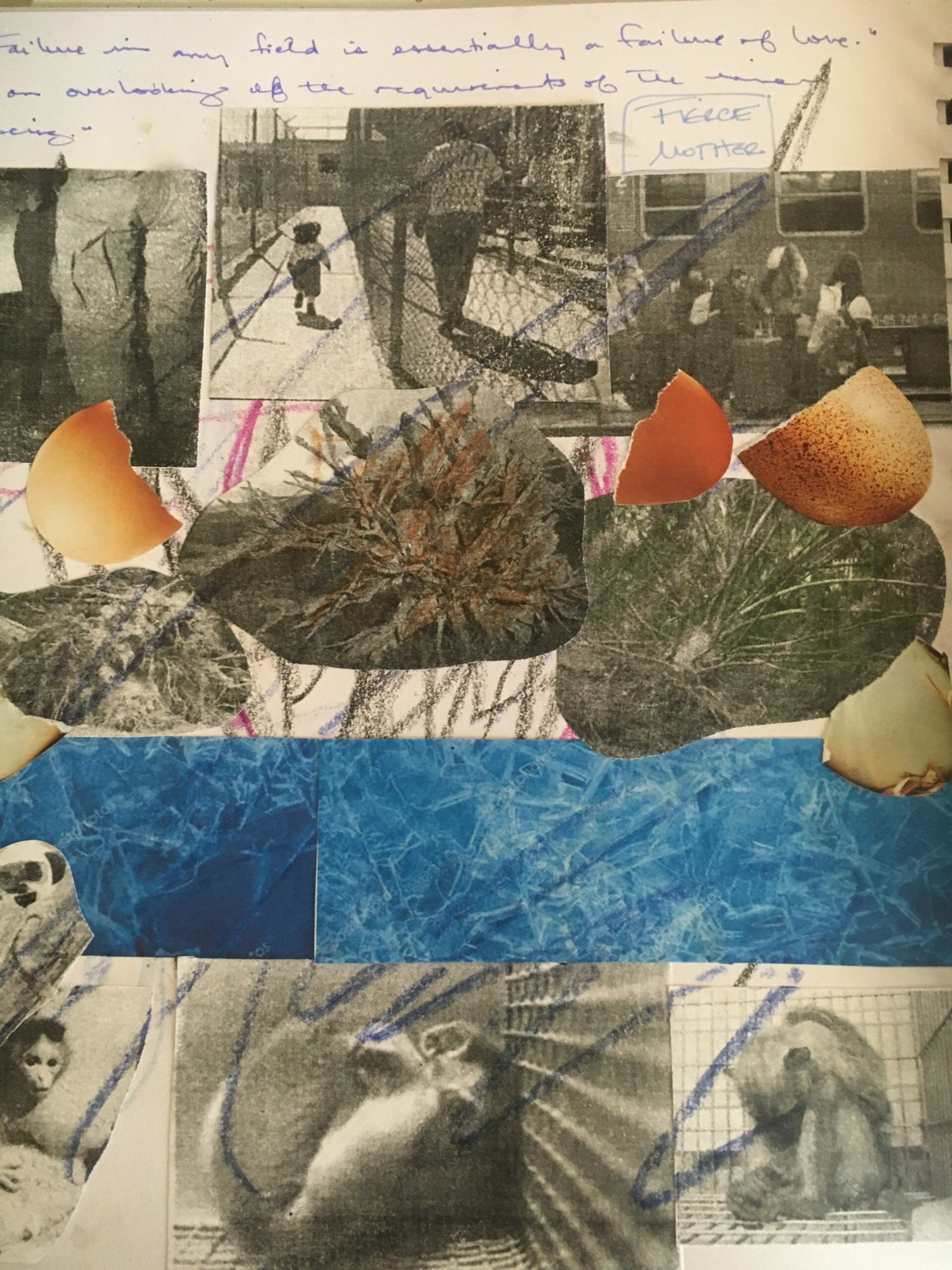
Guided meditations
You'll also receive weekly guided meditations to nourish and deepen your healing. These reflections will support you in healing separation, softening self judgment, and building the womb of growth.
You can listen to these meditations when you're feeling anxious. Or you can listen in the evenings, when most people overeat.
Q&A webinars
Where do you feel stuck? What's not making sense? What would you like to share about your experience?
When we offer When Food is Your Mother as a live class, with a group, we have weekly Q&A webinars.
For the home study class, When Food is Your Mother has occasional bonus webinars where you can ask questions and share your experience.
You can join live (they are hosted on zoom) or listen to the recordings later.
There's a bonus Q&A webinar on Wednesday, January 18, 2023, from 2 to 3:15 pm Central Time (Chicago / Dallas, USA.)
Listening partners
You'll also have the option to pair up with a listening partner or two. Listening partners are the inspired idea from Hand in Hand Parenting founder Patty Wipfler. With a listening partner, you each take turns listening to each other as you share your collages or what's arising for you in the class.
I highly recommend this part! Having a space to simply be heard and listened to without any pressure to change or fix is something so many of us are thirsty for!
Your listening partner doesn't have to be someone in the class - you're also welcome to use someone outside the class like a good friend, loved one, or therapist. You can also ask a friend to join you in the home study course so you can go through the materials together.
If you're unsure how to work with a listening partner, I offer guidelines about listening partners in the course materials. This can be helpful if you've never done something like this before.
Being listened to with warmth, care and presence is a healing balm that helps the places within us be supported, allowing us to shift and change the ways we nourish ourselves. This companioning does so much more than the course materials by themselves, which is why it's included as a core component of the class.

Do you feel moved to join the course?
If this course feels like a good fit for your needs, we'd love to have you. And if you have any questions, please reach out. We want you to get the help you need, whether it's with us or with someone else.
You can also read feedback from former students. Here are examples of what past students have shared with us. These are excerpts; the rest of their words can be found here.
I haven't come across a program like this and I will continually refer my clients to you as they need this foundation work (set the roots) before they can blossom..." - Rochelle Ludovisi
Thank you for having an approach that is TRULY unique, and EXACTLY what I'm needing now. I've tried EVERY approach out there, EVERY diet, EVERY form of therapy, EVERYTHING. But there is something about your "heart over binge" approach that is just what was missing from my life..." - Julie
"Not only am I noticing small, slow steps with my eating, I am seeing how your developmental approach is helping with my spending and relationship issues--- they are all so interwoven!!!" - Candace

'A space to trust your process and soften the
pressure to 'fix'
In addition to teachings that help you make sense of your relationship with food, this course also encourages you to trust your process.
In When Food is Your Mother you won't find pressure to 'fix,' meet a certain expectation, achieve a certain result, or to force healing. There isn't a timeline or pressure to stop overeating - rather you'll learn how to nurture the conditions that help you soften and let go.
You may discover that this approach softens the part of you that feels 'responsible for making healing happen.'
Of course, changes can and do happen! But changes are much more likely to occur when we approach our relationship with food with reverence, respect ("to look again") and trust. Past students have shared how feeling held, witnessed, and accepted just as they are helped them nurture changes in their relationship with food.
It's a beautiful irony that this acceptance is often what we need in order to feel safe to grow.
Healing is a beautiful Mystery, and we invite you to lean into Her. It's a relief to soften the urgency to 'fix' yourself and the pressure of feeling like it's all on your shoulders.
So you'll prepare good soil. You may put up some fences. We'll water your seeds of growth. And as Martin Prechtel said, "the holy in your seeds will direct."

Healing the pain of separation
One of the most powerful effects of this course is how it heals separation – the self judgment, shame and guilt you may feel about overeating. As you understand the primary needs that drive your bond with food, this separation begins to dissolve.
The shame of “I should've known better” softens, the inner critic relaxes, and you feel connected to a greater sense of forgiveness and self compassion.
Becoming the loving 'mama bear' to your heart
With this integration, you move into a position of being the loving guide, the inner protector, and compassionate mother for the parts of you that act out with food. Like a mama bear, this supports you in building the impulse control and tempered thinking that enables you to feel the pull of craving and say no.
Healing isolation + sharing what you long to give
You also come to see the other side – that your struggles with food don't have to be a source of isolation or shame. In fact, your vulnerability can deepen your belonging, your connection with others.
What a gift: to honor your experience without shame.
As feelings of isolation soften, and as you feel held in safety, you can open your heart to relationship, to being in connection, and to offering the world your unique gifts.
Many people describe how they feel free to be themselves, and free to share the caring and love that resides within their hearts, what felt covered over by food and shame.
Why this work matters
I know that healing your relationship with food is important to you - especially when it impacts so many areas of your life. I know it's been painful and that you long for relief! I want this and so much more for you.
Be filled with ease rather than stress
I want you to understand the places where you've gotten stuck in food while also feeling empowered to change.
Habits do not define your self worth
I want you to know in your bones that your habits do not define your self worth; that neediness is not just okay, but sacred.
Be filled with courage
And I want you to be filled with strength when you face scary things, knowing that you're not alone, that there's so much support available for you.
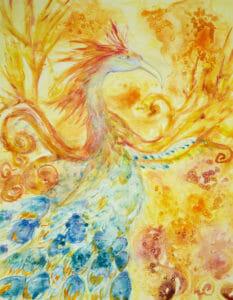
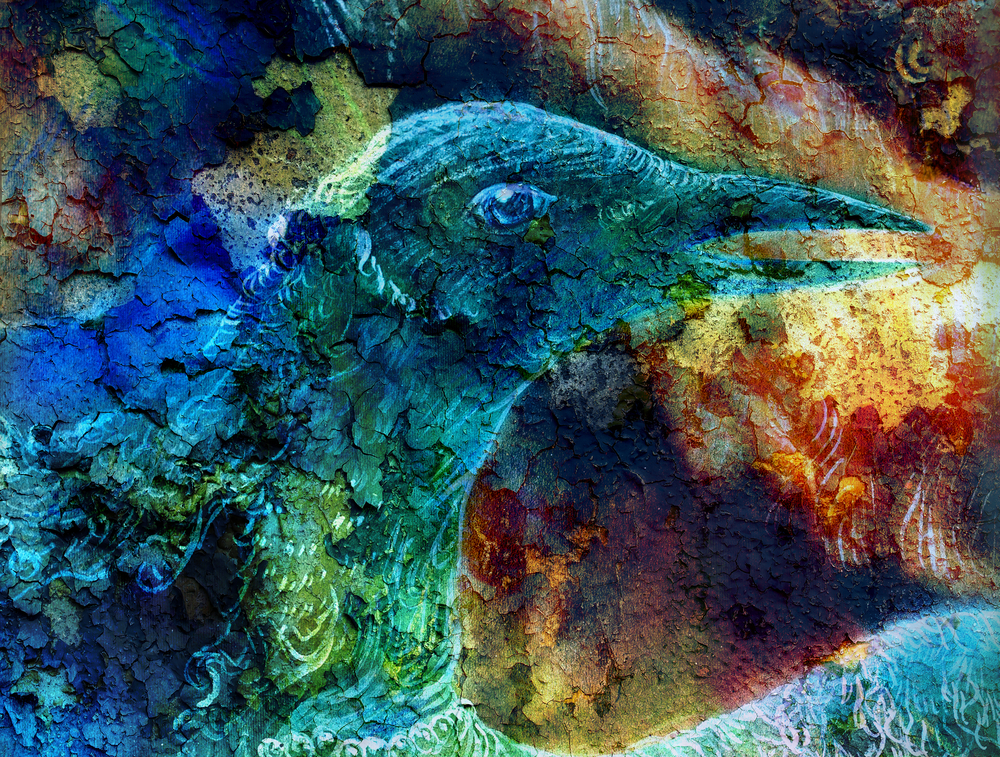
The wonder in the wound
It's easy to frame a struggle with food as something 'outside' our wholeness – as if our health includes everything but this. But overeating is not a detour from your wholeness. It's a deeper embrace of it.
If you've struggled with food and you feel a nudge to look inside – even if you don't know how that might look – then you're at a turning point in your journey. Some part of you is longing to deepen.

Midwifing your deeper story
We all have capacities and skills that can feel dormant or 'little,' things we think we can't or don't know how to do. And there are other qualities inside us that long to express themselves – things like trust, compassion, understanding, forgiveness, and patience.
We may not trust our capacities or qualities. We may think they don't exist. But they're there.
These qualities long to be born into the world, and to be born through us. But like all that is holy, they aren't born through grandiosity or grandstanding, but through the small, through the liminal, through the Child, through the very thing we're struggling with.
Your relationship with food is an opportunity for healing and wonder, how these capacities and qualities grow and express themselves through and in you. Like the mud that cradles the lotus, your 'struggle' is the very place where your story of shame can fall away and you can begin to wonder: what is my deeper story?
Whether or not you choose to take this course or whether you find help elsewhere, I cherish your deeper story and how this story is being born in you.
May your deeper story be midwifed and watered into fullness. May your yearnings be supported with kindness, care, and support. May you feel ease and wholeness. Blessings and blessings to you.

Frequently Asked Questions
We host our do at home courses on Mighty Networks, where we have our own private network. I think you'll find this software easy to use and very user friendly. One of the things people love about Mighty Networks is that they have a free app you can download on your phone which you can use to listen to the course materials. Once you purchase the class, you'll need to create a free account on Mighty Networks. Then you'll be able to access the course materials at any time.
When you buy a home study course with us, we guarantee a year's access to the course materials online through Mighty Networks. Once the year is over, we offer a zip file of all the course materials which you can download to your device.
Either way, once you buy a course, the materials are yours to keep and to use for as long as you need them.
As a micro business, we can't guarantee lifetime online access, as much as we'd like to. But as long as we have the Mighty Network open, you can access your course materials online. The zip file is a handy backup plan.
In all our courses, you'll find common threads like fostering compassion, relating to rather than cutting out various parts of ourselves, and approaching ourselves with reverence. What makes When Food is Your Mother different is it's specifically focused on nurturing your internal village, your sense of connection and ‘holding.' When Food is Your Mother also offers more information about attachment theory and relational neuroscience, and how food can become a substitute place of connection and regulation. If you're interested in understanding food compulsions from this perspective, then you're in the right place.
If you're willing to reflect upon your experience, feel into your true needs, and make time for the exercises and course materials, you'll do well. It's also important that you're comfortable in an online environment, as we're not able to offer extensive technical support. Lastly, it's helpful if you're open to meditation practices and reflection. This course is especially designed for highly sensitive people and offers gentle ways of supporting growth and change, so many people who long for a gentle approach find resonance with our offerings. If you're still unsure if this course is for you, please reach out - we're here to help and to answer questions.
Healing attachment wounds and trauma is beautiful and holy work. It can also be complex and often requires time, patience, and the skill of a trained trauma therapist. While this course offers support and nourishment to deepen your relationship with yourself, and is often therapeutic for our people, we are not trained therapists.
When Food is Your Mother is not a replacement for therapy, and it is not designed to heal trauma. For help with trauma, we highly recommend searching for a therapist with trauma training like EMDR or somatic experiencing in your local community. This kind of support can make all the difference - and we want this for you! We've created a page here to support you in getting good trauma support.
We want you to find the right fit for your needs, whether that's with us or with another resource. If you have any questions if When Food is Your Mother is the right course for you, please reach out. For our do at home courses, you can ask for a refund for any reason up to the first 15 days after your purchase. Please contact us by email or phone and we will give you a full refund. We process refunds on Fridays. After 15 days, we don't offer refunds. You can learn more about our refund policy and the intentions behind it here.
Any further questions?
If you're unsure if this course is the right fit for you, or if you have any questions, please reach out. We appreciate that there are many paths to healing, and we want you to get the help you need, whether it's from this class or from another resource.
And if you have a question, chances are others have the same one. Your asking helps everyone.
In their own words - feedback from former students
If you're wondering what other students have experienced in When Food is Your Mother, you can read their experiences below. Many of our alumni take this class more than once as they receive so much from it.
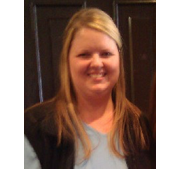
Best money I've ever spent. Seriously. Nothing about my food issues has ever made sense before - - until now. My thinking is changing a little every day, and your teachings are a balm to my soul. I often find myself weeping because you "get me." The material is so deep and life-changing that I desire to go over it again and again.Thank you from the bottom of my heart.
- Cindy, USA
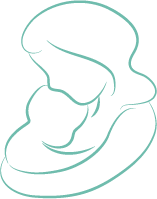
"It was such an honor to be apart of When Food is Your Mother. I am reminded of your kind words, honest nature and your wisdom on a daily basis.
"I've found for both me and my clients, it's challenging to get past this addiction unless you look at the root cause. I haven't come across a program like this and I will continually refer my clients to you as they need this foundation work (set the roots) before they can blossom into the beautiful flower that is in all of us. Thank you,"
- Rochelle Ludovisi, Los Angeles, California, USA

"I've learned so much from When Food is Your Mother. I am so grateful that your website and have the opportunity to participate in the webinars and listen to your soft and caring answers.
"If I need to use a caring voice in my self-talk, I will use yours.
"Like so many others, I have tried every diet/eating plan imaginable - all with little, no or short-term success. Now I know why none of those plans worked!
"Not only am I noticing small, slow steps with my eating, I am seeing how your developmental approach is helping with my spending and relationship issues--- they are all so interwoven!!!
"I'm so grateful to have been led to you and your wonderful teaching"
- Candace Snow

"I want to send you my deepest gratitude for your work, for you insights, for your kindness and compassion. But more importantly, I need to thank you for having an approach that is TRULY unique, and EXACTLY what I'm needing now.
"I've tried EVERY approach out there, EVERY diet, EVERY form of therapy, EVERYTHING. And I've worked with really great people.
"But there is something about your "heart over binge" approach that is just what was missing from my life.
"I'm so happy to know you, to have found your materials, and to be part of your classes.
"I'm experiencing a form of healing I never dreamed possible, at just about the lowest point in my life (my husband died in September of Thymic Carcinoma, a very rare and aggressive cancer, and we have a 9 1/2 year old). Just as I felt I couldn't sink any lower, I started hearing your voice, your message, and it all started to shift for me.
"I feel like I've been given a new lease on life. Thank you."
- Julie, Brooklyn, New York, USA

"I just finished listening to Module 2 yesterday and I thought 'Holy Cow!' Karly really hits the nail on the head. I had to stop it after a while just to think it over.
"I'm a nurse, providing in-home patient care.
"I have sent so many articles to my friends on this topic. I'm also in OA, and struggling with it. It feels mean sometimes. Whereas Karly's approach is so much about self-love and caring for yourself.
"I wanted to let you know that my experience with this course has been fantastic!! Really amazing shifts as I listen and allow your words to sink into me that articulate my experience.
"Thank you so much for being so articulate about things that reach me on a pre-verbal level. Just wanted you to know that your work is powerful and helpful."
- Char, USA

"Your work is helping me acknowledge and connect with how I am feeling, see how I use sugar as an emotional crutch and soothing technique, find my core values, and develop alternate ways to soothe and honour myself.
"It is also helping me move toward a more meaningful and compassionate mindset around food, fitness/sports, and my health. I'm learning to step down from the surface, the ego, and go deeper into my heart.
"I am learning to articulate and thus seek the things that really drive me and move me. The things that matter." - Susan, United Kingdom

"I wish that every single person on our beautiful planet could feel as good as I do now.
"If you're thinking about doing this programme, then I urge you to stop thinking. Just thinking has never helped me much.
"Doing seems to be the answer, and doing it with kindness, respect and gentleness is winning the day for me. May it win your day too."
Karly rocks!"
- Lucrecia